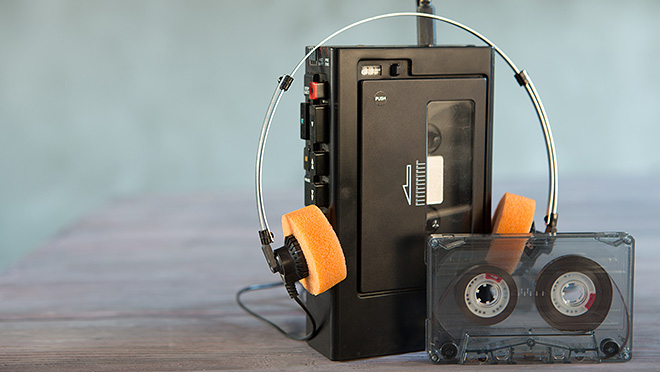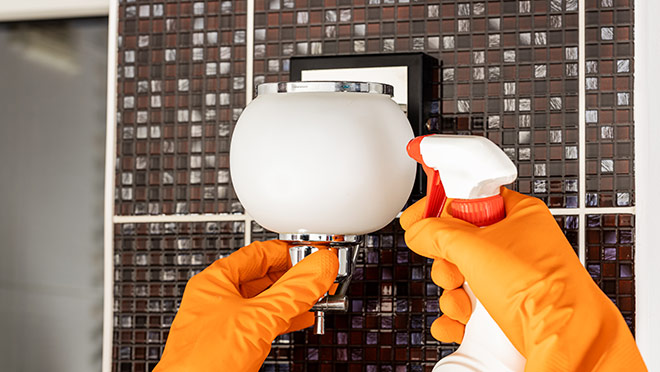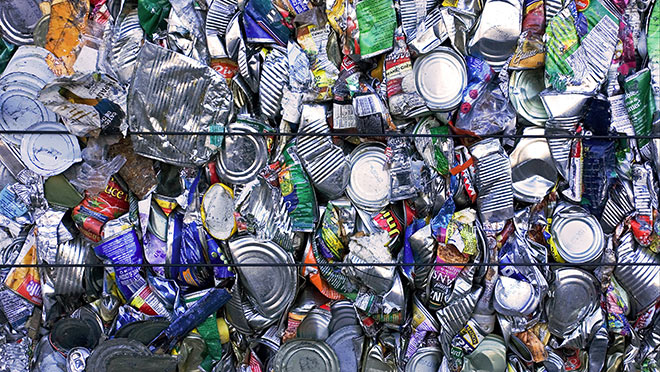Spring cleaning: Before you junk that thing...

Many household items are in great demand, and re-use means less waste
Rob Klovance
For bchydro.com
In a world of disposability, spring cleaning can easily turn into a fill-the-dumpster exercise, with perhaps a few itemsrecycled. But it doesn't have to be that way.
While it makes sense to recycle old, inefficient electronics and appliances – or to junk unrecyclable damaged items – there's a market for a lot of things you no longer have use for. Somewhere out there, there's someone with a box of cassette mixtapes who'd love to buy your 1984 Sony Sports Walkman. And there's a consignment store or online reseller more than capable of selling that purple Nike Dri-Fit running hoodie that's no longer you, but might be someone else.
Here's a look at how to find a home for household items that might be part of your spring cleaning, plus a few tips on how to use your spring cleaning time wisely.
Electronics? Laptops are in, but microwaves are a dime a dozen
You're done with that laptop, but that doesn't mean it's done.
Look for organizations in your community that accept used laptops and other devices. And if you strike out there, make sure to recycle your laptop or other device through return-it.ca or electrocycle.ca, which accepts everything from blenders and power tools to old clocks. As much as you might think you can sell or donate your old microwave, there's little chance any organization or thrift shop will accept it, and there are dozens and dozens available on Craigslist.
In the Lower Mainland, you can drop off your laptop – generally if it's not older than eight years – to the Burnaby headquarters of the B.C. Technology For Learning Society, where youth workers will refurbish it. The society has donated more than 185,000 computers to B.C.-based non-profits, schools and low income individuals.
Farewell fridge in the garage, A/C unit in the window
You might think it's handy to keep running that old fridge in the garage or basement, which has a dozen beer and a bunch of pop in it. But is it really worth the extra cost to keep it running 24/7?
Ditto for that window air conditioner. You may be able to get away with strategic use of floor fans and window coverings in the heat of the summer. Or, perhaps it's time to switch to a heat pump that will give you both energy-efficient heating and cooling year-round. Plus, you could be eligible for rebates of up to $2,000 for switching to a heat pump from electric baseboard heaters, and up to $11,000 in combined rebates if you switch from natural gas, oil, or propane heat to a heat pump.
You can recycle a variety of old appliances, including fridges and air conditioners, through marrbc.ca, which includes a full product list and a search tool to find a dropoff location near you.
Someone wants your tools, if they work
If you're seriously handy, you may have a whole lot of tools you don't use much. That's the essence of what spring cleaning is about, and hand tools in particular are great for resale or to give away. As for that glitchy battery drill you've replaced with a new tool, take it to your nearest electronics recycling depot.
Batteries and light bulbs
The good news in B.C. is that on average, six of 10 household batteries are recycled, while two of 10 continue to be stored somewhere in our homes. The bad news is that about 15% still end up in landfills.
Make it easier for your family to recycle batteries and old light bulbs by dedicating a small collection box to the task. Put in a smartphone reminder to drop off those recyclables the next time you visit your local recycling depot or retailer (London Drugs, Canadian Tire, etc.)
Sell or donate gently-used clothes (but junk the undies)
In a world of $10 tee shirts and way too much disposable fashion, it makes sense to ensure as many clothes as possible lead a long life.
"Fast fashion is the second largest polluter in the world, after oil," says Kat Russell, co-director of the Nanaimo consignment clothing shop Funk Revival. "If you buy a secondhand pair of jeans, it's like averting the use of hundreds of gallons of water. Every piece of clothing has its own story, and some of it uses way more energy and water than it should."
At Russell's shop, you'll find everything from the stunning (Off-White green high-tops) to the vintage (1960's floral dress). Just recognize the difference between "gently used" and "tired". Not only will torn or worn clothes have no place in a consignment store, they're also a major waste of time for thrift shops who have to sort through donations each week.
"Even if you think it's clean, we want you to wash an item before you bring it to us," says Russell. "If you take care of your clothes, we'll take care of your clothes."
The rule of thumb on clothing donations? If an item is in good condition (no stains, holes, or tears) and is clean, it could be a great candidate for consignment or for a thrift shop donation. Also look to mending or using your clothes as utility rags, and see Metro Vancouver's Think Thrice About Clothes site for details about what to donate/recycle (no underwear, please), what to repair, and how to reduce the number of clothes you buy.
Did you know? In Metro Vancouver, 44 millions pounds of clothing was thrown away last year.
Put filters and leaks on your spring cleaning list
While you're decluttering, check to see if any filters – from your furnace to your dryer to your heat pump – need to be replaced. Use the time to check and maintain anything mechanical, including vacuuming the compressor coils behind your fridge. Check for leaks in your fridge door, and in the weatherstripping around windows and doors. And it's also time to fix that dripping tap.
Act on Digital Clean-up Day, March 19, 2022
The international organization worldcleanupday.org is promoting the deletion of all unnecessary files, apps, photos, and videos from devices as a means of trimming at least a bit of the Internet's massive carbon footprint. It has declared March 19 as Digital Clean-up Day, and its website offers a nice list of ideas on how you can cut the clutter on your smartphone, tablet and computer.
Why do they feel it's so important? They claim that each year, the internet and its supporting systems produce 900 million tons of CO2, which is more than the CO2 output of Germany.
Not-new thinking: You can shop used, too
One of the best ways to fight the disposable lifestyle is to resist buying loads of $10 tee shirts and the latest gadgets when you may just find a great piece of clothing at a consignment shop or a used small appliance on Craigslist. Before you buy new, take a few minutes to see if there's an option to re-use and perhaps save a few bucks along the way.
Here are a few examples of used items that aren't hard to find:
Toaster ovens and air fryer/toaster ovens: There's an abundance of these small appliances on Craigslist and other reseller sites, and they help you cut home electricity use in a handy, practical way. Learn about the benefits of small appliance cooking, and explore recipes.
Espresso machines: Craigslist is flooded with items, from $4,500 machines for the super serious coffee drinker to Nespresso machines for less than $100.
Smartphones: So many people feel compelled to upgrade their phones that there's a glut of used phones available, both via online resellers and at retailers such as the Apple Store, where you can also get a warranty for a refurbished phone.
Golf clubs, especially for kids: Buying a new set of kids golf clubs is akin to buying brand new kids ice skates. They're going to grow out of them, so look at used options online or at used sporting goods outlets. And if you're an adult that only plays a few times a year but is tired of paying for rental clubs, check online to see if there's something that will work for you.
Updating furniture or doing a home reno? Sell or donate stuff
My contractor was already making a trip to the local materials transfer station to drop off the old drywall removed as part of a home reno project. So it would be no trouble to also drop off the old Ikea wall unit that was also being removed.
But why? Within a day after posting the bookshelves on Craigslist, I had several people more than willing to pick them up and take them away. They were free, so it mattered not that they were a bit yellowed, and had a few holes drilled in to allow for electrical cords. They're being reused when they may have wound up at the dump.
Like used clothes, used furniture can be sold or donated only when it's not broken or damaged, unless of course it's a collector item that someone might repair. Take a look online to see how many similar items are available, and consider giving stuff away to those who have a vehicle big enough to do it.

